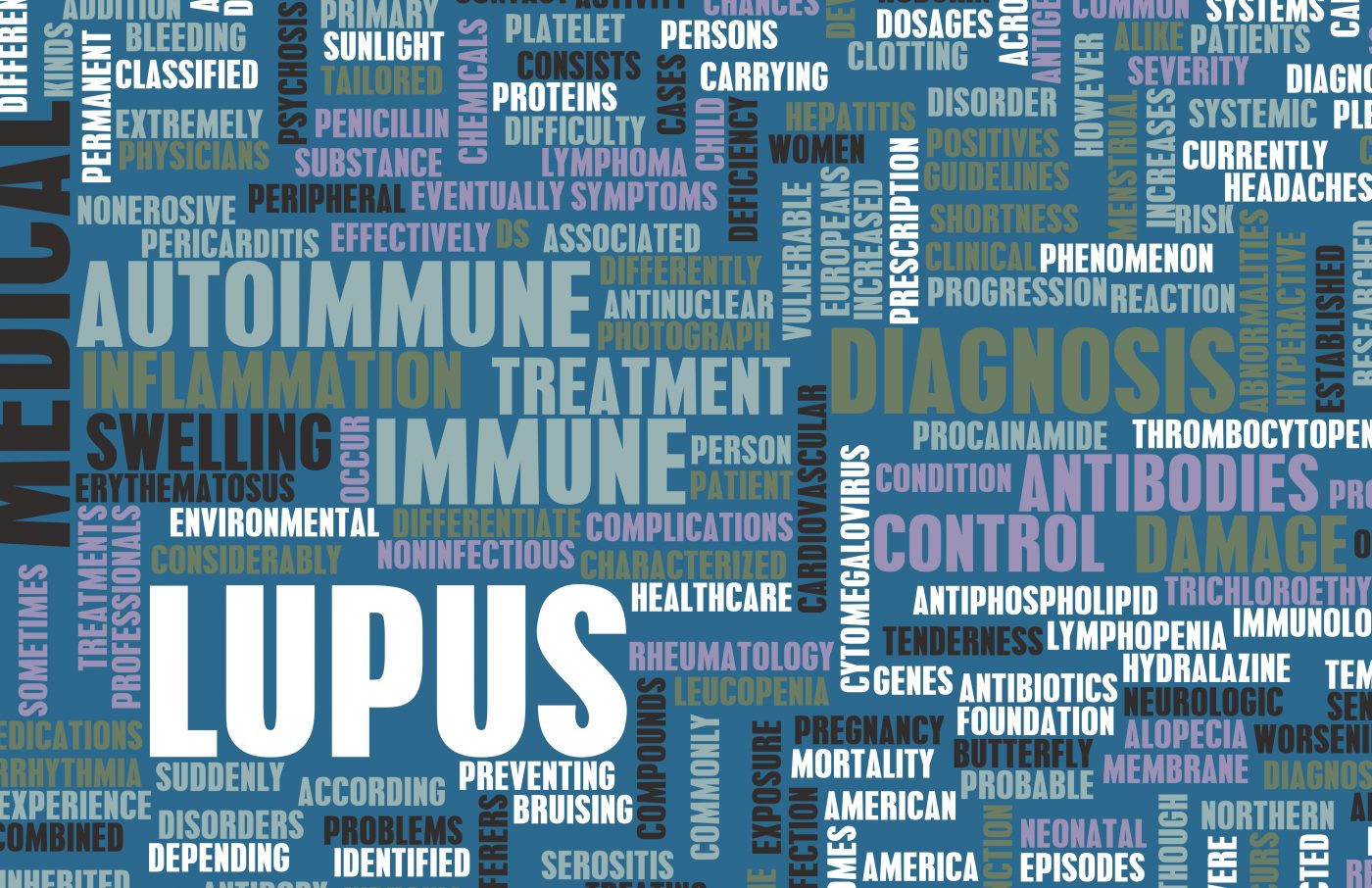Systemic Lupus Erythematosus Therapy Shows Efficacy in Phase 3 Trial
Written by |

GlaxoSmithKline (GSK) announced positive results from its BLISS-SC Phase 3 study testing the efficacy of Benlysta (belimumab) in patients with active and autoantibody-positive systemic lupus erythematosus (SLE) who are receiving standard therapy. The results, detailed in “A Randomized, Double-Blind, Placebo-Controlled, 52-Week Study of the Efficacy and Safety of Belimumab Administered Subcutaneously Plus Standard Care to Patients with Systemic Lupus Erythematosus (SLE),” were presented during the recent 2015 American College of Rheumatology/Association for Rheumatology Health Professionals (ACR/ARHP) Annual Meeting in San Francisco.
BLISS-SC is a randomized, placebo-controlled, 52-week study to evaluate the efficacy and safety of belimumab administered subcutaneously (200 mg weekly) to patients with active, autoantibody-positive SLE who are receiving standard of care (SoC) therapy. Benlysta is a human monoclonal antibody therapy that targets the B-lymphocyte stimulator (BLyS), important in the survival of B cells, and reduces autoantibody production. A total of 836 patients were enrolled in the study, with 556 receiving belimumab plus SoC and 280 receiving placebo plus SoC.
The primary endpoint of the study was reached, with significantly more patients treated with belimumab plus SoC (60.8%) showing reduced disease activity compared to placebo plus SoC (48.47%) as measured by the Systemic Lupus Erythematosus Responder Index (SRI) at week 52. SRI is a comprehensive composite endpoint measure, whose components determine reduction in disease activity defined as clinical improvement (SELENA-SLEDAI score) with no significant worsening in any organ conditions (BILAG, or British Isles Lupus Assessment Group, score), and no worsening in overall patient condition (PGA or Physician’s Global Assessment score).
The two main secondary endpoints were time to the first severe SLE flare, and the percentage of patients whose prednisone (corticosteroid) dose was reduced more than 25% in weeks 40–52. Results here showed time to a first severe flare was significantly delayed in the belimumab group (170 days) when compared to the placebo group (116.5 days). A significant difference was not found in prednisone dosage, though more patients in the treatment group were able to reduce steroid dose by 25% or more (to ≤7.5 mg/day) during weeks 40–52 when compared with patients on the placebo group (18.2% versus 11.9%, respectively).
The safety profile was in line with the two previous BLISS studies, with a 31.3% incidence of adverse effects (AEs) in the drug group and 26.1% in the placebo group, most commonly infections. Discontinuation of treatment due to AEs was 7.2 % in patients treated with the belimumab versus 8.9% in the placebo treatment. A total of five deaths occurred, three with belimumab and two with placebo, a number similar, investigators said, to that found in all previous randomized controlled studies of belimumab in lupus.
“Despite use of current standard of care, such as glucocorticosteroids and immunosuppressants, about 60% of lupus patients continue to experience persistent symptoms and severe disease flares. This is GSK’s third successful Phase III study of belimumab in patients with lupus, the results of which reinforce our belief in the BLyS pathway as a means of reducing underlying disease activity,” said Paul-Peter Tak, Senior Vice-President and Head of the Immuno-Inflammation Therapy Area Unit at GSK, in a press release. “On the basis of these data, we expect to progress towards global regulatory filings for a belimumab subcutaneous formulation, which if approved, will provide appropriate patients with a new approach to treatment administration.”




